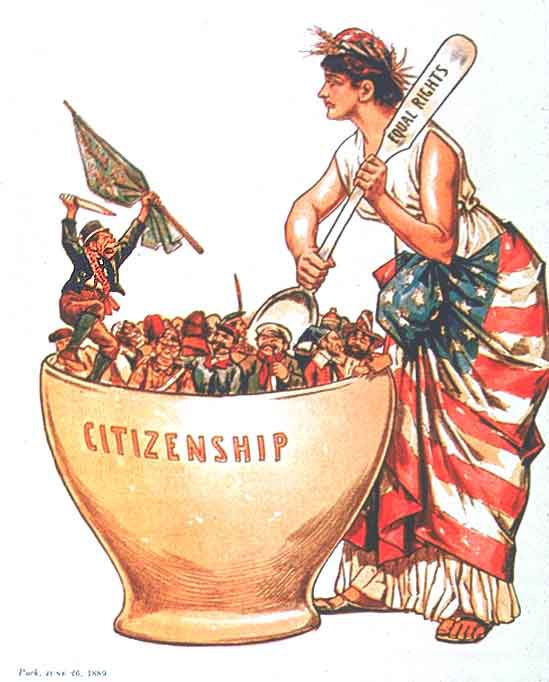Avoiding melting pot mentality, freedom to maintain identity
November 7, 2017
My mother immigrated from Palestine to America 23 years ago, and I often ask her how she’s managed to keep our Arabic culture alive in a different country. She’s always told me that one of the best things about America is that it allows you to be more than one thing—that you can be both Arabic and American at the same time. One portion of your identity does not detract from the other.
Thus, I’ve grown up in a household where we ate hummus and burgers. We listened to Arabic music and Bruce Springsteen. We celebrated Eid and Halloween, Thanksgiving and Valentine’s Day. And I’ve always embraced this hyphenated identity, this “-American,” because it has shown me that I do not have to limit myself to one culture.Yet I’ve found that this isn’t always the case—that there is a stigma against being a “hyphenated” American, that the American identity is often expected to take precedence over an immigrant’s own heritage. And this notion comes through in the idea of the American “melting pot.”
In high school, I was introduced to the School House Rock cartoon called “The Great American Melting Pot.” Besides being incredibly catchy, this cartoon proclaimed that our country is a place where people’s cultures and customs blend together.
But to be an American is actually not to be part of this melting pot. Because if you think about it, all of the individual, distinctive characteristics that make us who we are dissolve into a one-note, unrecognizable mass. Every individual’s culture, customs, heritage, history—all of the things that make people who they are, all of the stories and experiences they have had dissolve into this larger “American” identity.
I’ve read about a different food-inspired analogy that I’d like to share with you: try thinking of America as a salad. Each ingredient is different, and each ingredient is important because they bring something new to the mix, creating a country that is enhanced by this bowl of heritages. Each and every one of our own individual cultures has value, and that value should not to be overshadowed for the overall American one, because there is beauty in being able to possess both.
Above all, to be an American is to uphold freedom. And I’m not talking about the proverbial, sarcastically-said-with-an-eye-roll-capital-F “Freedom.” I mean true freedom—to be who you are in all respects, to be proud of your culture, your identity and your experiences. So embrace that hyphen, no matter where it falls. Because to be an immigrant, to be a true American, is not to forget about where you came from as you journey on to where you’re going.


